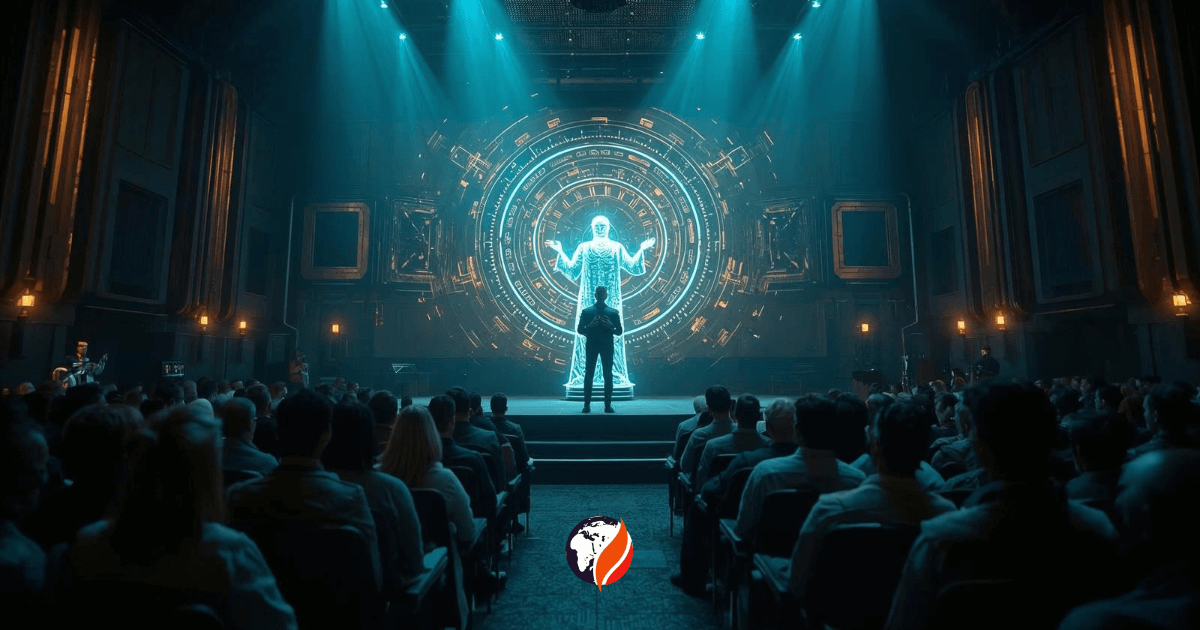
Is the Rise of AI Preachers a Biblical Sign of the End Times?
In an era where artificial intelligence permeates every aspect of life, from daily tasks to spiritual guidance, the emergence of AI preachers has sparked intense debate. A recent event in Germany, where an AI delivered a sermon to a congregation, exemplifies this trend. Pastors and theologians are grappling with whether this technological advancement signals the biblical end times, as prophesied in Scripture. This article explores the rise of AI in preaching, its pros and cons, biblical perspectives, and potential prophetic implications, drawing on expert views and holy texts.
Understanding AI Preachers: Innovation or Impersonation?
AI preachers refer to systems like ChatGPT that generate sermons, biblical analyses, or even simulate pastoral voices. In one instance, pastors tested AI-generated sermons and found them competent but lacking soul. As noted, "It lacks a soul - I don't know how else to say it," said Hershael York, a pastor and professor. Other clergy, including Rabbi Joshua Franklin, questioned AI's empathy: "AI has yet to develop compassion and love." These tools can produce sermons on topics like forgiveness or mental health, but critics argue they miss the human element of changed lives and community building.
Surveys reveal mixed adoption among pastors. Only 12% are comfortable using AI to write full sermons, while 43% see value in it for preparation and research. Concerns include AI's potential to fabricate biblical references or lack relational depth. Yet, AI aids busy pastors by summarizing theological texts or suggesting illustrations, as explored in various ministerial discussions.
Pros and Cons of Using AI for Sermons
The integration of AI in sermon writing offers both benefits and drawbacks, as outlined in detailed analyses.
Pros:
- Efficiency and Resources: AI provides access to vast theological libraries, efficient data analysis, and grammar checks, saving time for deeper reflection.
- Creativity Boost: It generates ideas, diverse perspectives, and strengthens arguments by simulating skeptic viewpoints.
- Consistency: Ensures tone and message alignment, aiding clear communication.
Cons:
- Lack of Authenticity: Sermons may feel generic, missing personal connections, empathy, and spiritual insight from lived faith.
- Ethical Issues: Over-reliance raises concerns about transparency, integrity, and potential biases in AI data.
- Spiritual Risks: It could diminish prayerful preparation and spontaneity, leading to dehumanized ministry.
Pastors warn that while AI can enhance productivity, it risks eroding the pastor's role as a Spirit-led vessel.
Biblical Perspectives on Technology in the End Times
Scripture offers guidance on technology's role in the last days. Daniel 12:4 prophesies, "But you, Daniel, roll up and seal the words of the scroll until the time of the end. Many will go here and there to increase knowledge." AI's explosion in knowledge aligns with this, accelerating information dissemination. Matthew 24:14 states, "And this gospel of the kingdom will be preached in the whole world as a testimony to all nations, and then the end will come," suggesting AI could aid global evangelism through translation and online platforms.
However, warnings abound. Genesis 11:6, the Tower of Babel, cautions against pride in human ingenuity: "If as one people speaking the same language they have begun to do this, then nothing they plan to do will be impossible for them." AI might foster self-reliance over God-dependence. Ephesians 5:16 urges, "making the most of every opportunity, because the days are evil," encouraging wise tech use.
AI as a Potential Sign of End Times Prophecies
Some Christians link AI to end times deception. Matthew 24:24 warns, "For false messiahs and false prophets will appear and perform great signs and wonders to deceive, if possible, even the elect." AI deepfakes and avatars could mimic miracles or prophets, facilitating falsehoods. Revelation 13:16-17 describes the mark of the beast: "It also forced all people... to receive a mark on their right hands or on their foreheads, so that they could not buy or sell unless they had the mark." Neural interfaces and digital currencies might fulfill this through AI-enabled control.
Reddit discussions speculate AI could deceive believers from recognizing Christ's return or act as a modern Babel. Prophetic voices like Jimmy Evans connect AI to the Antichrist's deceptions in 2 Thessalonians 2:9-12: "The coming of the lawless one will be in accordance with how Satan works. He will use all sorts of displays of power through signs and wonders that serve the lie."
The Call for Authentic Preaching in the AI Age
Authentic preaching demands a lifelong immersion in Scripture, as in Ezekiel 3:1-3: "Son of man, eat this scroll I am giving you and fill your stomach with it." AI cannot replicate this personal digestion or the relational love of 1 Corinthians 13:2: "If I have the gift of prophecy... but do not have love, I am nothing." Over-reliance on AI risks bypassing Spirit-empowered ministry, as warned in Colossians 3:16: "Let the message of Christ dwell among you richly."
Conclusion: Discernment in the Digital Age
The rise of AI preachers presents opportunities for efficiency but profound risks to spiritual authenticity and potential alignment with end times prophecies. As 1 Thessalonians 5:21 instructs, "Test all things; hold fast what is good." Believers must use AI as a tool, not a replacement, grounding faith in Scripture amid these signs. Whether a direct harbinger or a catalyst for reflection, AI urges us to seek God's wisdom in these possibly prophetic times.
No comments yet. Be the first to comment!